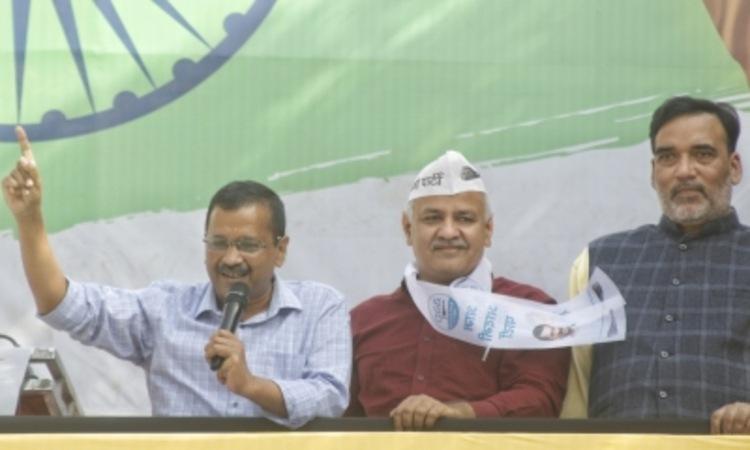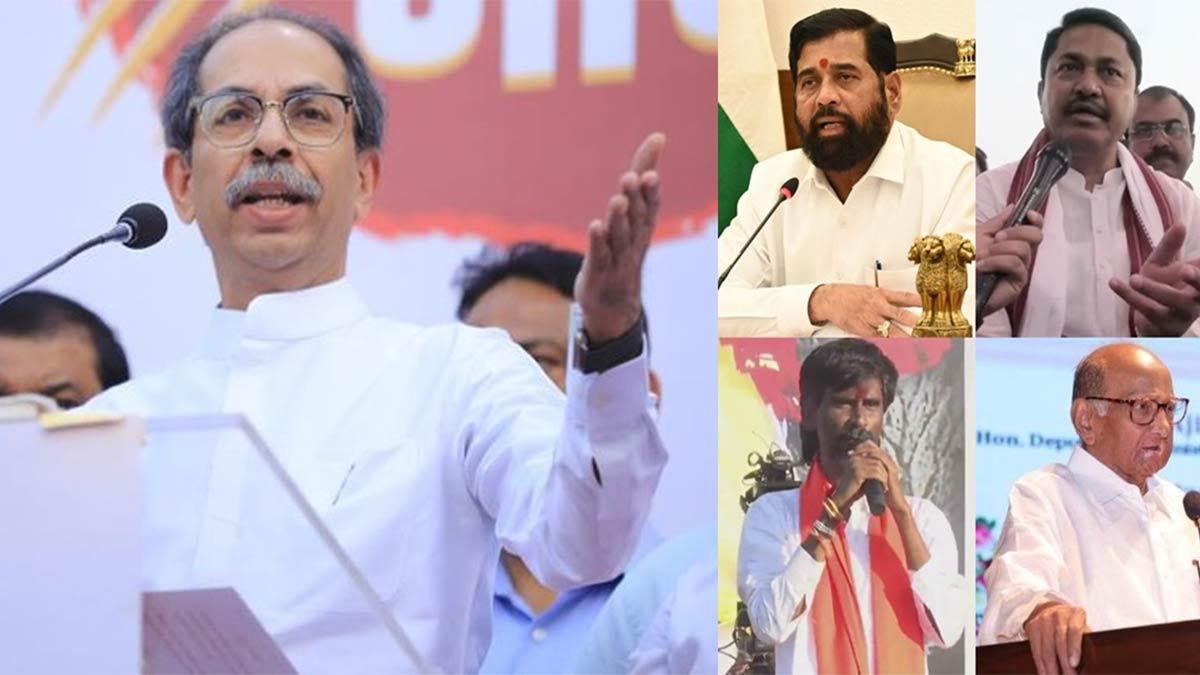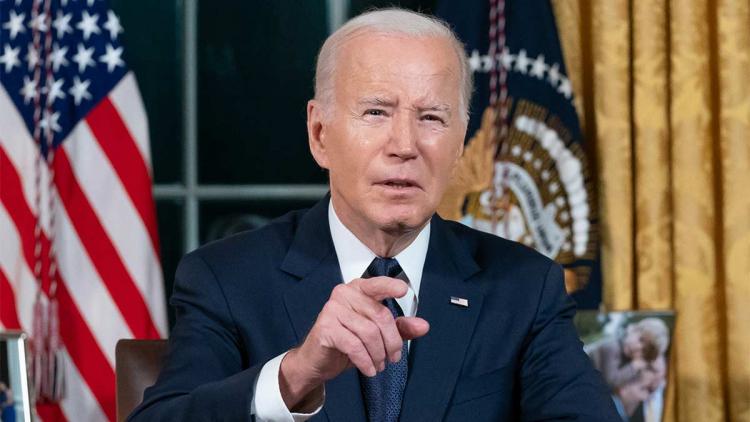The convincing second term victory of BJP in Uttar Pradesh and Uttarakhand Assembly elections and the runaway first-time success of AAP in Punjab confirm that the astute common man of India voted in favour of a clean and effective dispensation -- this was already tested in UP, assured for the future by Prime Minister Narendra Modi in Uttarakhand and promised by Arvind Kejriwal for Punjab on the strength of his record in Delhi.
Manipur and Goa have witnessed the rise of mainstream sentiments of India under the nationalist Modi regime.
In UP, infamous for crime and mafia, a firm grip on law and order became the hallmark of Yogi Adityanath's rule and this combined with the impact of Prime Minister Modi's thrust on development and welfare schemes benefiting the common man and his household got the people --regardless of caste affiliation -- to ensure the continuity of the present government.
The man on the street was convinced that Prime Minister Modi and Chief Minister Adityanath are leaders of personal integrity and with good intentions and the 'double engine' call therefore made good sense to him in the backdrop of what he had seen happening on the ground.
In UP, the sharp increase in the vote percentage for BJP indicates the contribution of women voters and a significant decline in the votes polled by the Bahujan Samaj Party (BSP) and Congress marks the disenchantment of people with the stagnant politics of these opposition forces.
The results in Punjab have the significance of a real first-time event in Indian politics. The defeat of Parkash Singh Badal, Navjot Singh Sidhu and Chief Minister Charanjit Singh Channi, and for that matter the decisive loss in Patiala of Amarinder Singh, showed a complete discrediting of the two major political forces -- Akali Dal and Congress -- that had ruled Punjab in the past.
Their image marred by corruption and feudal conduct took a further beating in the period before the elections as they had nothing new to offer. Since BJP was not on the scene as an alternative, the AAP, which had been quite visible after the last elections and which had constantly talked of the measures that it would take to improve the state, attracted the attention of the voters, including the farmers in Punjab.
The promises of Arvind Kejriwal, the Chief Minister of Delhi next door, in respect of water and electricity, looked convincing to the people at large in a state that had no faith left in the narrow outlook of the parties they had suffered in the past.
The success of BJP in reaching within the striking distance of government formation in Manipur and Goa has a great significance of its own. The northeastern state has taken a lead in aligning with the national mainstream fostered by the BJP -- no doubt helped by its cultural ethos -- while the state of Goa hitherto caught in the mesh of disparate influences locally and from outside, is seeing the merit of becoming a part of the Indian mosaic.
These Assembly elections therefore are trend setters for the future. First, there is growing recognition of the need for India to have a strong national party at the Centre to put the country on the path of even development and to guarantee national security.
The election results reflect this concern. Indians are sensitive to any threats to national security and have in the past even pushed their personal issues of livelihood aside to respond to war emergencies -- like what happened in 1965.
The rise of Prime Minister Modi as a world leader in the context of the Ukraine-Russia military confrontation having created war clouds on Europe, would not have gone unnoticed by the informed voters.
The outcome of the Assembly polls shows a welcome trend of voters judging the parties by performance and not attaching much importance to rhetoric and political bravado. The improvement in crime control was certainly noted by the people in UP, particularly when the politician-criminal nexus was known to have played havoc in the state earlier.
The difficulties on job front and price rise were not state-specific and a demonstrative line of the Yogi government that there would be no favouritism and play of bribe in the functioning of the administration, would have made an impression.
BJP governments at the Centre and in UP showed how to take work from the bureaucracy without letting it unduly influence policy decisions. In India, this will be a major factor in deciding the advance of the BJP rule in states.
The Centre's recent experience in West Bengal and Punjab, of the politically tinted conduct of top functionaries of state administration and police in the matter of discharging their constitutional responsibilities, has learnings for the Modi government in the sphere of improving the functioning of the All-India Civil Services.
Perhaps the most important political outcome of these Assembly elections is the 'corrective' these polls would exercise for the future on the unchecked resort to 'minority politics' that had become such a glaring feature of the campaign of the opposition.
This evidently drew many voters of the majority community to the BJP in acknowledgement of the latter's nationalist credentials. The Ulema and the elite guiding the Muslim minority would do well to work for the socio-economic upliftment of the community within the secular dispensation of democratic India that was run on Constitutional mandates.
There is a prime threat to India's internal security from the hostile Sino-Pak axis, primarily because these adversaries have a certain capability of fishing in the troubled waters of our domestic polity.
Particular mention may be made of Pakistan's National Security Policy recently released by Prime Minister Imran Khan, who clearly projected India under the present leadership as an enemy and went on to frame Indo-Pak relations in Hindu-Muslim terms.
All Indians must value the 'one man one vote' principle on which Indian democracy rests and the built-in secularism that it provides for by way of equal opportunity of development and equal protection of law for all its citizens.
It is a matter of concern that there was advocacy by responsible sections of community's leadership of 'a share in the power' at the Centre for the minority. There is need for a push back from such positions of communal divide and a renewed emphasis on not injecting religion into politics and on upholding nationalism.
This will benefit all common Indians who regardless of the community have the same concerns of development and security.


















